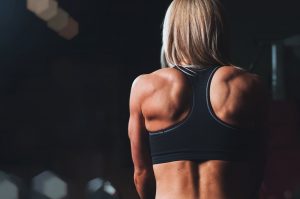Yes, there might be one very important nutrient you are missing in your body without even knowing it. When we talk about nutrient deficiencies, there are so many minerals and vitamins that get a ton of hype and we are more aware of them. We all heard about the importance of vitamin D, omega-3, magnesium, and vitamin B. We are more aware of the importance of these nutrients, and we try to make sure we have these nutrients in our daily diet. However, there is one nutrient that might be underrated and often overlooked.
Iron – Underrated Nutrient
We all heard about iron and we know something about its importance, but many people are experiencing a deficiency of iron without even knowing it. This especially refers to women. Women often have a significant issue with iron, and they are not even aware of it. The reason why iron is so underrated could be that the reason why we might experience iron deficiency is not always closely related to our diet.
Why Women Have Low Levels of Iron?
Iron deficiency affects approximately between 20% and 25% of the world’s population and most of those affected by low levels of iron are women. What is the reason behind this? The common reason for iron deficiency is closely related to heavy bleeding during menstruation. Also, deficiency of iron is common among pregnant women since a baby needs a great amount of blood. This is probably the main reason why premenopausal women are more affected by a lower level of iron compared to the rest of the population.
What are Other Reasons Behind Iron Deficiency?
It’s important to remember that if you lose blood, you lose iron. If you consume too little iron, over time this can lead to iron deficiency. Pregnancy and heavy bleeding during menstruation is not the only reason why women are affected by iron deficiency. Inadequate nutrition or medical condition have their contribution to iron deficiency. So if you combine gender (being a woman) with an inadequate diet and certain medical conditions, you can be under a great risk of having iron deficiency.

Can Exercising Have Impact on Iron Deficiency?
Can Exercising Have an Impact on Iron Deficiency?
Iron leaves in our red blood cells and an intense workout leads to an increased level of red blood cell production. You need enough iron in your body to meet the demand for a high-intensity workout.
High intense exercise can reduce the iron level by 70%. Before you start panicking, it’s important to remember that most, athletes are the ones who deal with iron deficiency due to high-intensity workouts. If you are a professional athlete, the chances are you are aware of how important it is to have a lot of iron intake in your daily diet.
Female athletes are at higher risk compared to men. If you exercise a lot and you are a woman, you have to make sure you are eating enough foods such as spinach and red meat to ensure a higher level of iron intake.
How to Know if You Have Iron Deficiency?
If you don’t have enough iron in your body, you will feel tired, restless, and get headaches. Sometimes we can explain these symptoms by other environmental situations or personal issues, but iron deficiency could be one of the causes behind the feeling of tiredness. Other concerning symptoms of iron deficiency are extreme fatigue, pale skin, dizziness, inflammation, brittle nails, poor appetite, weakness, chest pain, cold hands, and feet.
What Can You Do?
The first thing that you can do is test the level of iron to determine if you are lacking the iron nutrient. If you have iron deficiency, you can get this nutrient through both animal and a plant-based diet. You can also talk to your doctor and consider supplements. It’s possible that your doctor will recommend for you to reach an adequate level of iron through diet first before introducing supplements. It’s very important to talk about this with your doctor first.
Foods rich in iron include red meat, seafood, dark green leafy vegetables, dried fruit, peas, iron-fortified cereals, pasta, bread, and beans. Your body can absorb most of the iron from the meat than from any other source. That’s why vegetarians can be at risk of iron deficiency. If you choose not to eat meat, you need to make sure that you have a regular intake of iron-rich food. That’s very important for your overall health. It’s not as bad as some might think but you just need to be more aware of it.




